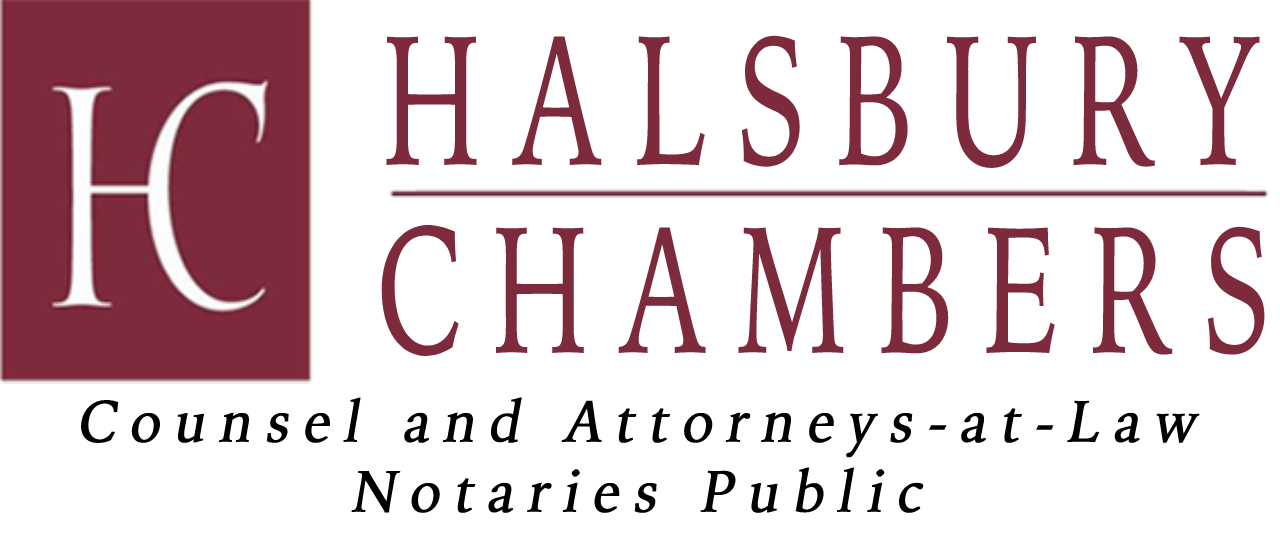FREQUENTLY ASKED QUESTIONS
Questions on Will and Estate Law in The Bahamas
Q: What is a will?
A will is a written disposition or declaration by which the person making it (the testator) provides for the distribution or administration of his real and personal property after his death.
Q: What is the purpose of appointing an Executor in a will?
An executor is the person to whom the execution of a will, that is the carrying of its provisions into effect is confided by the testator. The executor’s duties include the burial of the deceased, applying to the Court to prove the Will and obtaining the Grant of Probate, administering the estate and distributing the residue of the deceased’s real property and personal property to those persons entitled under the will.
Q: What is ‘real property’?
Real property is land and anything growing on, attached to or erected on it, excluding anything that may be severed without injury to the land.
Q: What is ‘personal property’?
Personal property is everything except real property. Property that can be seen, weighed, measured, felt or touched or is in anyway perceptible, e.g. furniture, fixtures and fittings, books, clothing, bank accounts, insurance policies, company shares, motor vehicles, boats, golf carts, heavy duty equipment, tools, etc.
Q: What is a ‘devise’?
A devise is a gift of land or other real property in a will given either as a specific gift or a residuary gift.
Q: What is ‘a legacy’ in a will?
A legacy is a gift of personal property by a Will. The person to whom the property is given is called “a legatee.”
Q: What is a ‘bequest’?
The gift of personal property is known as a bequest.
Q: What is a ‘Mutual Will’?
A Mutual Will is one of two separate wills in which two persons, usually a husband and a wife, establishes identical or similar testamentary provisions disposing of their estates in favour of each other.
Q: What is a ‘Pre-nuptial’ Will?
A pre-nuptial will is executed before marriage and is not revoked by the subsequent marriage.
Q: What is a ‘Holographic’ Will?
A Holographic Will is a testamentary declaration or disposition written by the testator in his own handwriting and it is typically unattested.
Q: Who can make a Will?
A person of unsound mind and an infant are by law incapacitated and unable to make a Will. A will can be made by a person who has attained his majority and has testamentary capacity. Testamentary capacity is the mental capacity that a person must have to prepare a valid will. This capacity is often described as the ability to recognize the natural objects of one’s bounty, the nature and extent of his estate and the fact that he is making a plan to dispose of his estate after his death. A person upon attaining his majority at the age of eighteen years can make a valid will.
Q: What parties must be identified when preparing a valid will?
When preparing a will, the attorney should ascertain the full names and addresses of the testator, the executor and the beneficiaries and attention should be given with respect to their places of domicile, particularly that of the testator.
Q: Should I have a will?
Yes you should make a will. Anyone who owns real or personal estate should make a will in order to make provision for the distribution of his estate to those persons whom he wishes to receive the same without any interference or conflict. Further, upon making a will a testator would be able to make provision therein for distribution of any residuary estate which he may acquire at a later date and the testator can also make provision for distribution of any gifts or properties he may acquire as a beneficiary of another persons estate.
Q: What is revocation of a will?
A will can be revoked anytime after it has been signed by the testator. A will may be revoked upon the testator making a fresh will. A will may be revoked by destruction, burning or tearing by the testator, or some person in his presence and by his direction with the intention of revoking And as previously stated above, a will can be revoked by a subsequent marriage.
Q: Can a will be challenged?
A will can be challenged as to the validity thereof based on allegations that the testator lacked capacity or was under undue influence at the time that he signed the will.
Q: What is a Trust?
A Trust is a relation between one person (or persons) on the one hand and another person (or persons) based confidence by which property is vested in or held by one person on behalf of and for the benefit of another person.
Q: Who is a ‘trustee’ and who is a ‘beneficiary’?
The holder of the property is the trustee and the party on whose behalf the trust is held is the beneficiary.
Q: What is needed to create a trust?
No special form of words is necessary to create a trust, if the intention is shown or can be inferred but three certainties are necessary (1) the words must be so used that they are imperative; (2) the subject-matter of the trust must be certain (3) the objects or persons intended to have the benefit of the trust must be certain. For a trust to be valid it must involve specific property, reflect the settlor’s intent and it must be created for lawful purposes.
Q: How is a Trust created?
A trust can be created by an Intervivos Trust instrument (a Living Trust) or can be created in a will known as a Will Trust. A Trust arises as a result of a manifestation to create it.

